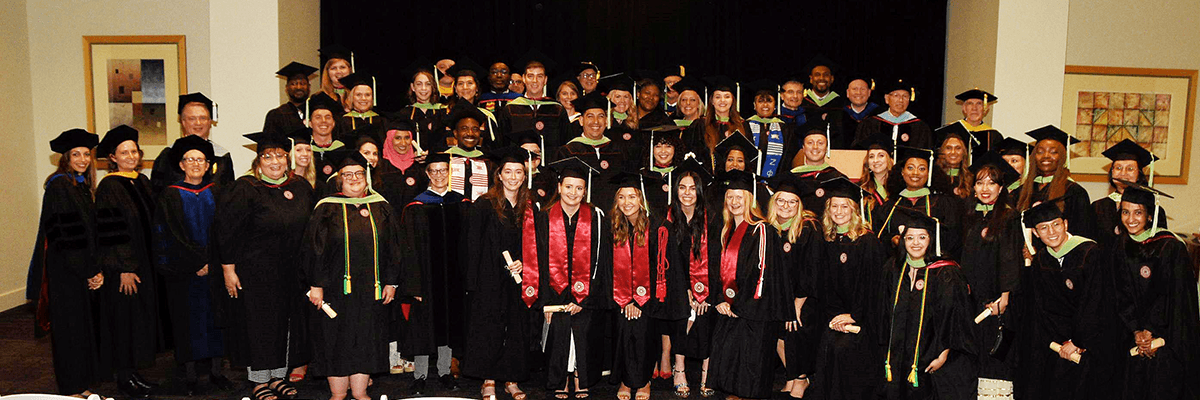IU LFSOP Students on Faith, Philanthropy, and the Future
IU LFSOP Students on Faith, Philanthropy, and the Future
A Note from David P. King, Ph.D.
Karen Lake Buttrey Director and Associate Professor, Philanthropic Studies
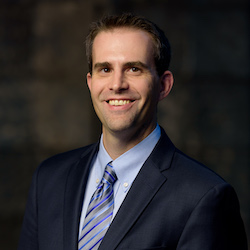 As I am reading final papers from my Religion and Philanthropy course this semester, I am struck by both the diversity of perspectives and shared passion that our students bring to this work. Semester projects have focused on topics such as Latter Day Saints’ humanitarianism, the multiple motivations of Muslim donors, as well as philanthropic biographies of Coretta Scott King and the patron saint of philanthropy Katharine Drexel, SBS.
As I am reading final papers from my Religion and Philanthropy course this semester, I am struck by both the diversity of perspectives and shared passion that our students bring to this work. Semester projects have focused on topics such as Latter Day Saints’ humanitarianism, the multiple motivations of Muslim donors, as well as philanthropic biographies of Coretta Scott King and the patron saint of philanthropy Katharine Drexel, SBS.
Across our Master of Arts program, students who are most often already professionals working in the nonprofit sector, find multiple ways to explore the intersections of faith and giving that Lake Institute explores throughout our work. And that is true across our degree programs from our undergraduate majors to our academic and professional doctoral programs.
As we are in the midst of graduation season, we are proud to work not only in research, professional development, and thought leadership across our broad public audiences, but also playing a small role in helping shape the current and future leaders in the field. The reflections below are a taste of the many colleagues engaged in philanthropic studies, their journeys, and the central questions that drive their work. Lake Institute is delighted to celebrate with these students, and if you are interested in Indiana University Lilly Family School of Philanthropy’s (IU LFSOP) certificate or degree programs, please reach out. We would love to share more.
In this article, students Br. James Jensen, Dennis Kilama, and Aimee Grace Tapeceria from the Indiana University Lilly Family School of Philanthropy (IU LFSOP) share their reflections on the intersections of faith, philanthropy, and the future, offering a glimpse into the journeys and questions driving the field.
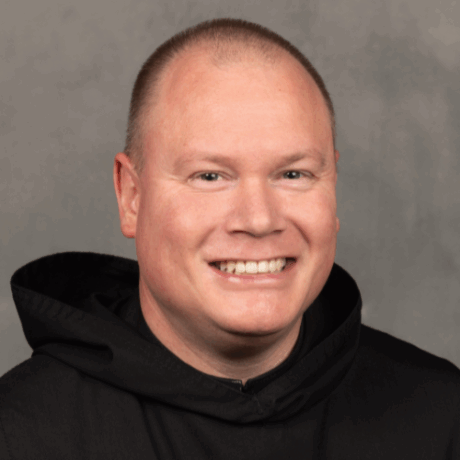 Br. James Jensen is earning a Graduate Certificate in Philanthropic Studies from the IU LFSOP. He is a Benedictine monk at Saint Meinrad Archabbey in St. Meinrad, Indiana. Br. James primarily works in donor relations and community outreach at Saint Meinrad.
Br. James Jensen is earning a Graduate Certificate in Philanthropic Studies from the IU LFSOP. He is a Benedictine monk at Saint Meinrad Archabbey in St. Meinrad, Indiana. Br. James primarily works in donor relations and community outreach at Saint Meinrad.
My studies in the LFSOP have given me a bigger context for the role of nonprofit organizations. Further, my studies have given me practical tools to use as I connect with people in my work in Donor Relations at Saint Meinrad Archabbey.
Through this work, I have the opportunity to get to know many different people that help support Saint Meinrad’s mission. I get to share my passion for my Catholic faith and Saint Meinrad with others. It is a privileged space to walk with someone as they tell you parts of their journey with God. This authentic encounter with another person is where my observation about pressing questions for faith and giving begins. I wonder how we, as faith leaders, can recognize the work of the Holy Spirit in the relationships we foster. Do we intentionally seek the promptings of the Holy Spirit with others? As I journey with people, I notice that it can be difficult for them to see some movements of the Holy Spirit on their own. Therefore, exploring possible “God moments” with people have helped shape our philanthropic journey in exciting ways.
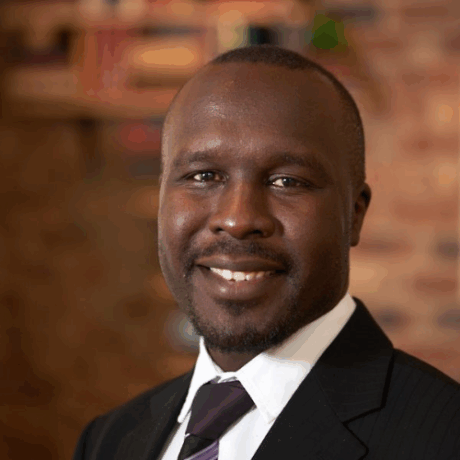
Dennis Kilama is a Ph.D. Candidate at the IU LFSOP and the William and Edie Enright fellow at the Lake Institute on Faith & Giving. He previously worked with various nonprofit organizations in Africa. His research interest focuses on the intersection of faith-based organizations, African philanthropy, and financial sustainability.
For the past three years, my studies in philanthropy have centered on three things. First, I have focused on contemporary issues in giving such as shifts in donors’ behavior, power dynamics in philanthropic relationships, and the role of foundations and non-profit organizations today. Second, is the question of how contextual realities around giving, such as historical legacies, political environments, and socio-economic conditions, shape why and how people give. Third, it is important to mention that the learning has been in a community of esteemed scholars that has provided great mentorship and guidance in my own quest as an emerging scholar in philanthropic studies.
Previously, I worked with faith-based organizations and my work often centered at the intersection of faith-based organizations and philanthropy in Africa. Hence, I pursued this program. First, I was interested in the question of faith and giving in the traditional African context. The program has allowed me to explore the communal and often informal structures of generosity that come before and yet also coexist with formal philanthropic practices. Second, I come with a deep interest in giving from a moral and ethical perspective, and the doctoral program has enabled me to examine how religious and cultural values shape motivations in giving. Finally, I had questions on how giving could be a means of empowering the marginalized. This aligned with my commitment to social justice and how philanthropy can be a tool for the transformation of Africa.
The pressing questions I see for the future revolve around three themes. First, given that by 2060, 40% of Christians are expected to live in sub-Saharan Africa, and 60% of Muslims in the Asia Pacific region,[1] how will these demographic shifts compare with the share of giving from the Global South? Second, given that 42% of the world’s youth will be in Africa and that 75% of the population in Africa will be below 35 years,[2] how will this shift shape the landscape of faith and giving in a digital era in traditional Africa? Finally, how will indigenous traditional values (such as Ubuntu) reshape the global models and conversations on the theology of generosity?
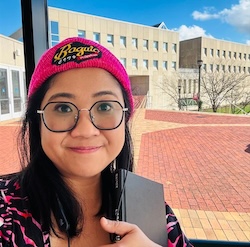 Aimee Grace Tapeceria is graduating with a Master of Arts from the IU LFSOP.
Aimee Grace Tapeceria is graduating with a Master of Arts from the IU LFSOP.
My mom calls me a jack-of-all-trades and master of none because I have a bachelor’s degree in accounting, master’s degree in education, and another master’s in social entrepreneurship. My professional life has centered on writing, teaching, marketing, and fundraising. I believe that all these experiences and talents were God given with a special purpose in mind for the work that I would be led to do.
In February 2018 I took on a temporary position at Adventist Development and Relief Agency (ADRA) and just few weeks later, due to staffing changes, I was asked to apply for the new role in the Public Relations and Marketing Office, which was to include fundraising.
I knew that trying to maintain the communications role would require me to put on my Jack-of-All-Trades hat because I would have to write stories, take pictures, design posters, edit videos, and much more. These tasks I was confident I could fulfill but fundraising was not something that I had done previously.
While I was working with ADRA, marketing and fundraising plans were based on prayer and instinct. The first week I arrived at the LFSOP, I was handed a binder from the Executive Certificate in Religious Fundraising (ECRF) course through Lake Institute. Each page that I read had me nodding my head in agreement, for I was seeing fundraising theories on paper, theories that I had previously implemented on instinct.
I came to IU fully prepared to dissect the lessons to be able to squeeze out the spiritual aspect of things, but as it turns out, I just needed to contextualize and absorb the information that would lead me to a better understanding of how to use philanthropy to help and minister to people. How I will use this philanthropic knowledge in the future? I do not know but am prepared for whatever God has in store.
Expanded Perspective: "To Commence"
By Kathi Badertscher, Ph.D., Assistant Dean of Academic Programs, IU LFSOP
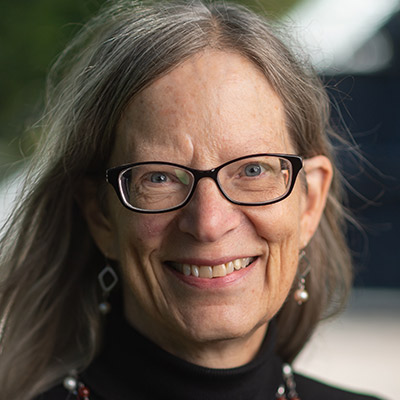
The month of May in Indianapolis ushers in joyous occasions: spring flowers; Mother’s Day; Indianapolis 500 events (the mini-marathon, qualifications, the parade, and the world-famous race); and – especially for those of us affiliated with Indiana University – graduation and the attendant commencement ceremonies.
Commencement often represents a beginning, as in, “to commence.” For students graduating from degree programs, commencement marks both a culmination of a plan of study and a new beginning. Our school celebrates their many successes and sends them off to pursue many new ventures, including their first nonprofit career opportunity, founding their own nonprofit organizations, advanced career positions, personal and family philanthropy, and advanced education.
Students find the LFSOP in many ways: simple internet searches, marketing, and conferences. Most of the time, however, a trusted advisor, mentor, or colleague nudges them to connect with the school. The common thread among students who come to LFSOP is a drive to be a positive influence in the world. New students bring powerful stories of their enthusiasm to make a difference, organize their knowledge, retrain to shift career paths, and advance as leaders. Many describe their faith tradition and upbringing as integral both to their identity and the way in which they support their communities.
Newly minted philanthropic studies graduates express mixed emotions at commencement. Everyone is thrilled to be graduating, yet many are anxious that the deep connections with the school community will now be different. We hope that classroom conversations of meaning, purpose, values, and vocation stay with them for life.
In 2024, Ph.D. graduate Kidist Yasin represented the LFSOP as the campus commencement speaker. She reflected on the role of faith in her journey: “faith is confidence in what we hope for; in my experience, this means believing that any current challenges are temporary, and that perseverance and resilience will lead to ultimate fulfillment.” Individual fulfillment is unique to each graduate and the school’s community is grateful to have played a role in our graduates’ successes.
Meet the 2024-2025 Graduates
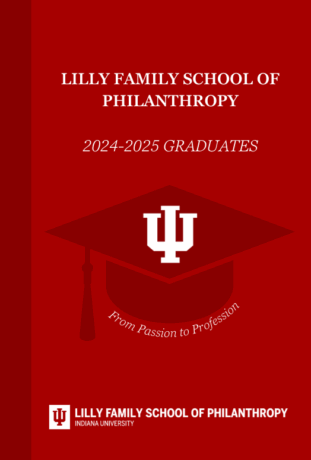 Congratulations to the 2024–2025 graduates of LFSOP! Please join us in celebrating this exceptional group of graduates. Lake Institute is proud to recognize their hard work, insight, and dedication. These scholars and emerging leaders represent a bright future for the field of philanthropy.
Congratulations to the 2024–2025 graduates of LFSOP! Please join us in celebrating this exceptional group of graduates. Lake Institute is proud to recognize their hard work, insight, and dedication. These scholars and emerging leaders represent a bright future for the field of philanthropy.
Take a moment to learn more about each graduate, their research, their passions, and what’s next on their journey.
Find Your Path in Philanthropy
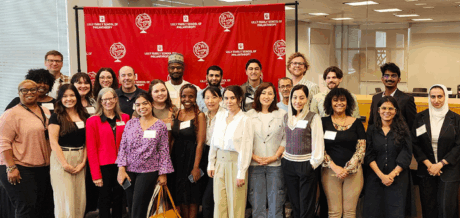 At Lake Institute, we’re proud to be part of the LFSOP, where students at every stage explore what it means to lead and serve in philanthropy. From undergraduate and master’s degrees to research and leadership-focused doctoral programs, these academic paths equip emerging and experienced leaders alike. Learn how these degrees can support your journey in the nonprofit and philanthropic sector.
At Lake Institute, we’re proud to be part of the LFSOP, where students at every stage explore what it means to lead and serve in philanthropy. From undergraduate and master’s degrees to research and leadership-focused doctoral programs, these academic paths equip emerging and experienced leaders alike. Learn how these degrees can support your journey in the nonprofit and philanthropic sector.
Subscribe
Insights is a bi-weekly e-newsletter for the religious community and fundraisers of faith-based organizations that provides:
- Reflections on important developments in the field of faith and giving
- Recommended books, studies and articles
- Upcoming Lake Institute events

